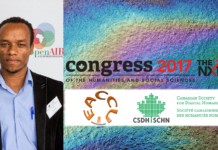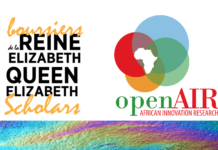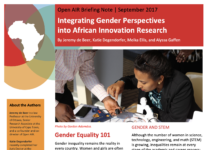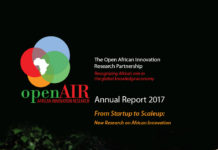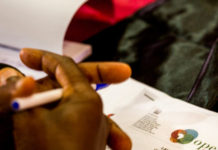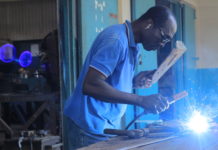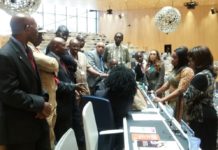Canada’s 2017 Copyright Review: Reflections on the Congress 2017
By Sileshi Hirko
Introduction
The last week of May 2017 was a week of great academic activity in Canada, Congress 2017. This event is run by...
Apply Now: Funding for Research on Gender and Innovation in Africa
Please note that this call for applications has now expired. Applications are not being accepted at this time.
Funding to conduct research on gender and...
Integrating Gender Perspectives into African Innovation Research
Gender inequality remains the reality in every country. Including and targeting women and girls in development greatly increases the likelihood of an initiative’s success.
Annual Report 2017
"From Startup to Scaleup: New Research on African Innovation" is the theme of the 2017 Annual Report.
Open AIR’s African-centered research calls attention to the...
Chapitre 1: Innovation, propriété intellectuelle et développement en Afrique
Jeremy de Beer, Chidi Oguamanam et Tobias Schonwetter Date de publication : septembre 2017 Télécharger : Chapitre 1: Innovation, propriété intellectuelle et développement en Afrique (3.7MB)
...
Chapitre 16 : La propriété intellectuelle collaborative à l’heure actuelle en Afrique
Jeremy de Beer, Chris Armstrong, Chidi Oguamanam et Tobias Schonwetter Date de publication : septembre 2017 Télécharger: Chapitre 16 : La propriété intellectuelle...
Chapitre 2: Cadres d’analyse de l’innovation africaine : l’entrepreneuriat, l’économie informelle et la propriété...
Jeremy de Beer, Izabella Sowa et Kristen HolmanDate de publication: septembre 2017Télécharger: Chapitre 2: Cadres d’analyse de l’innovation africaine : l’entrepreneuriat, l’économie informelle et...
Open AIR NERG presents at Windsor Symposium on Copyright User Rights and Access to...
By Uchenna Ugwu
How can “user rights” and exceptions to copyright be used most effectively to ensure access to knowledge for all? This question is...
Strengthening innovation support systems at Ghana’s Suame Magazine
In my previous blog on skills development and innovation at Ghana’s Suame Magazine, I showed how the high level of collaboration and sharing of knowledge and skills within the cluster is contributing to innovation. Further, I provided some preliminary findings on the inability of these artisans’ to keep pace with the changing technology landscape. I also found that few artisans expressed interest in joining or maintaining a membership with local trade associations due to these associations’ inability to implement their key mandate of skills development and facilitation of business for members and firms.
WIPO Special Committee on Genetic Resources, Traditional Knowledge, and Traditional Cultural Expression Shies...
The World Intellectual Property Organization’s specialist committee charged with negotiating text-based instrument(s) for the effective protection of Genetic Resources (GRs), Traditional Knowledge (TK), and Traditional Cultural Expressions (TCEs), on Friday June 16 2017 concluded its 34th session with partial agreement on its mandate and on the fate of the committee and its work program.

